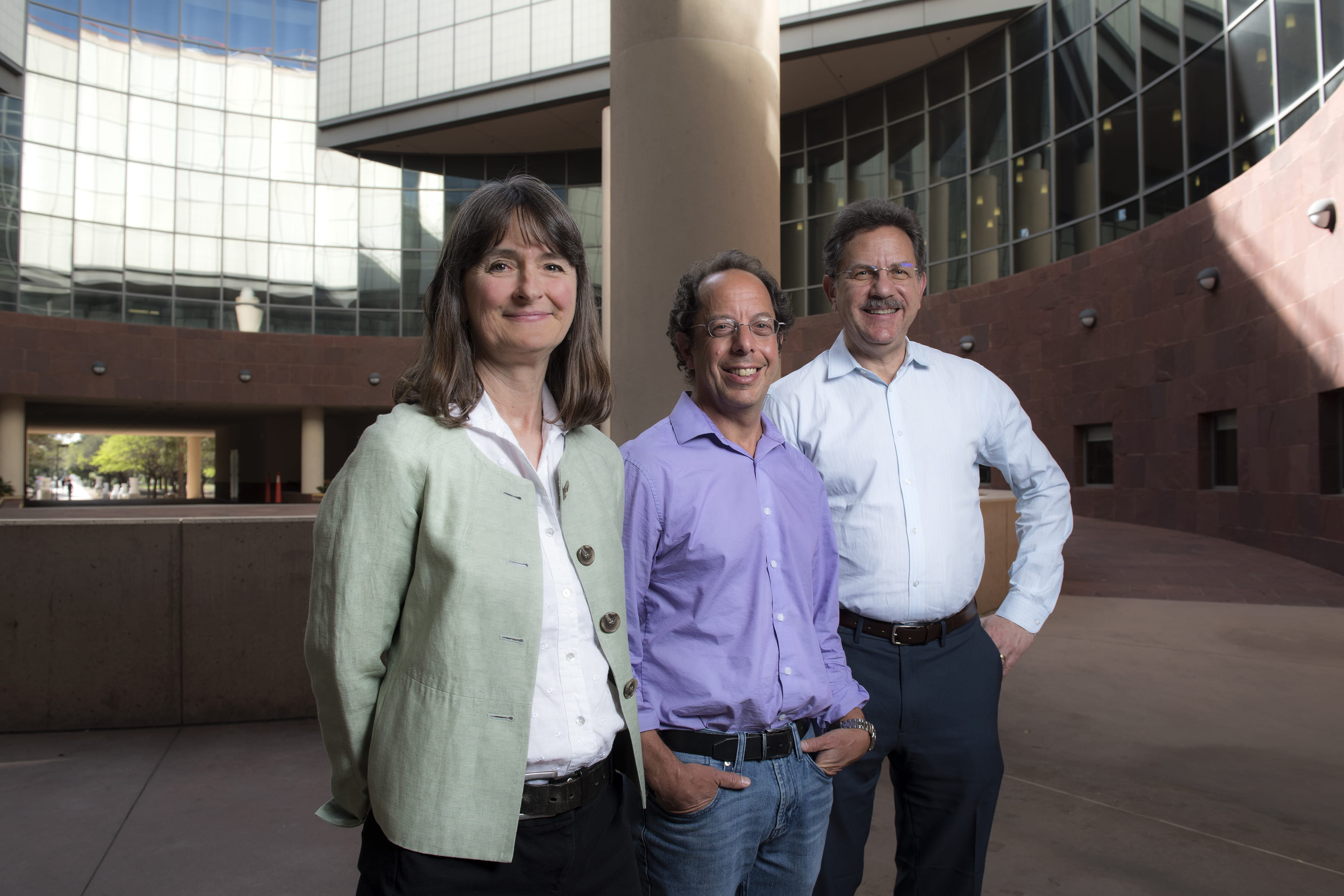Looking at cancer in a whole new way
UCI moves to the national forefront by taking an interdisciplinary systems biology approach to the devastating disease

A geneticist, a mathematician and a systems biologist at UCI are combining their abilities to study cancer in a totally different way, and what they and others discover could lead to improved treatments for colon cancer, melanoma and leukemia.
Fueled by a $10 million, five-year National Cancer Institute grant, Marian Waterman, John Lowengrub and Arthur Lander have established the UCI Center for Cancer Systems Biology. It’s among just 13 research institutions nationwide that are part of the NCI’s Cancer Systems Biology Consortium.
“We are very grateful and honored that NCI has selected our center as one of only a few in the United States to explore new frontiers in cancer research,” says Pramod Khargonekar, UCI’s vice chancellor for research. “Our excellent, multidisciplinary team of investigators is poised to make breakthrough discoveries with the potential for great translational benefits.”
UCI is distinctively set up to forge new paths in the emerging field of cancer systems biology, which combines basic and clinical research with exacting sciences and uses various technologies to produce algorithms and models that shed light on mechanisms underlying the cancer process.
Waterman leads the research arm of the Chao Family Comprehensive Cancer Center, a long-established powerhouse. And Lander directs the campus’s Center for Complex Biological Systems, internationally renowned for integrating the work of biologists, mathematicians, physicists, engineers and computer scientists to examine how molecules, cells, tissues and organs interact.
“At UCI, we have an outstanding group of systems biology and cancer biology researchers,” says Waterman, professor of microbiology & molecular genetics. “Their joint efforts will fully utilize our strengths in these areas.”
“The premise underlying the center’s research program is that cancer cells proliferate and evolve in complex environments that control their growth – and that their behaviors can only be fully understood in the context of the design principles governing that control,” adds Lander, Donald Bren Professor of Developmental & Cell Biology.
The center will carry out projects exploring the role of context, cooperation and community in the initiation and progression of the disease. One will leverage new data from colon cancer models to investigate nongenetic variation in solid tumors. Identifying these uninheritable factors could further understanding of tumor growth and response to therapy.
A second project will focus on the cellular origins of melanoma, specifically the biological interactions that bring about the skin cancer, as well as the conditions that promote the progression from benign to malignant.
The third effort involves improving models of chronic myeloid leukemia and its treatment. All three projects will merge mathematical modeling, genomics and experimental manipulation of animal models.
Participating faculty will be served by a core facility for probing tumors at the single-cell level, giving them access to the latest technologies. Research and outreach will be coordinated with that of other NCI consortium members.
“This is a great opportunity for UCI to be at the forefront of a national effort,” says Lowengrub, Chancellor’s Professor of mathematics. “The Center for Cancer Systems Biology will host tremendous scientific activity on a more focused understanding of cancer.”